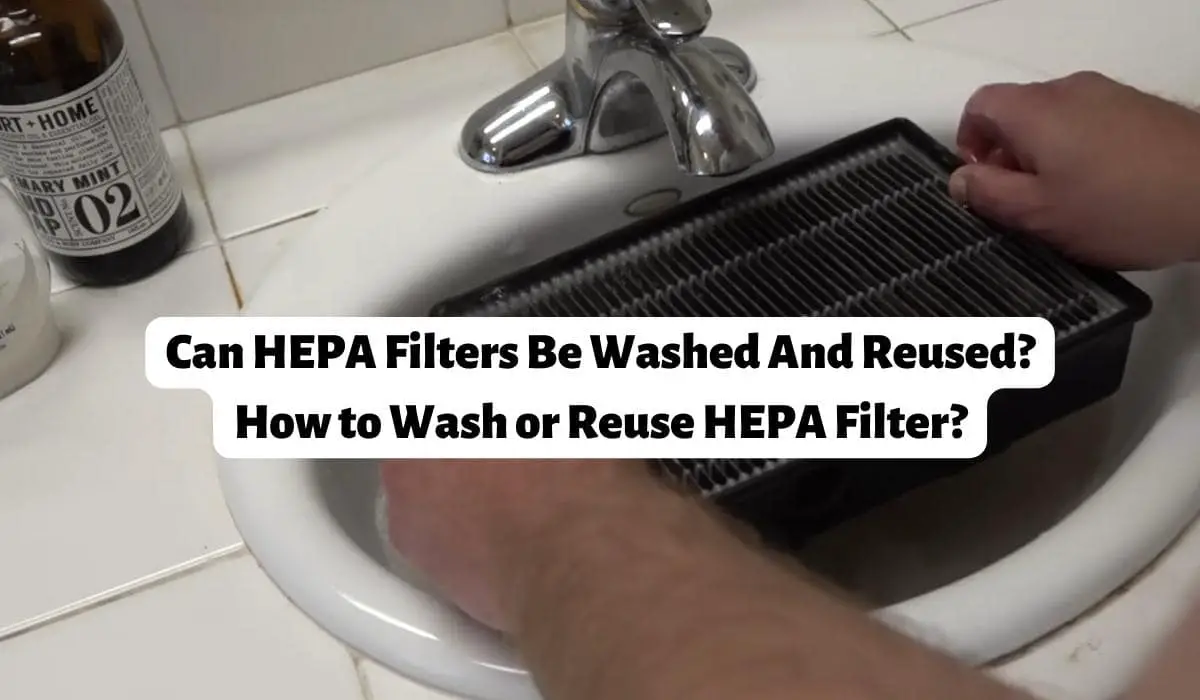Last Updated on April 8, 2024
Modern-day maintenance of your facility’s air quality is always a significant challenge. However, greater challenges arise when it needs to be precise. In this case, the HEPA filter is a great option. But can HEPA filters be washed and reused?
Well, yes, HEPA filters can be washed and reused. But depending on the types, you pick. If you go for the washable ones, it’s pretty straightforward to wash them. However, if you choose the permanent ones, washing or reusing won’t be possible. Instead, you need to go for replacements.
So, want to know about reusing and washing your HEPA filters? Then binge on till the very end.
How to Wash or Reuse HEPA Filter?
Here in this section, we’ll let you know all the ins and outs of how to wash or even reuse HEPA filters. So don’t skip any of it.
Identification If It’s Washable
There are two types of HEPA filters out there. One contains a washable tag, and the other has a permanent one.
With a filter that can be washed, you can easily go through the cleaning process without any trouble. However, the permanent one can’t be washed. Instead, the only thing you can do is replace it. So, you first need to identify whether or not the HEPA filter is washable or reusable.
Washing Methods
If the filter is washable, then you can wash the filter as instructions are given in the manual from the manufacturer. The better way to wash the filter is to rinse it under water. The water flow will clear the filter fiber path. After drying, it can be put back in place.
Moreover, the structure can be broken very easily. It’s essential to be careful while washing the filter. A vacuum cleaner can also be used to clean it.
Precautions
The pollutant particles can be inhaled during cleaning. Therefore safety measures should be taken. Also, it should be in a place where it won’t matter if the dust is released into the air.
Permanent Ones
Well, permanent filters can’t actually be washed (and it’s not good for permanent ones, either). So, the better option is to change the filter within time. If there is no pet and less dust in the facility, the filter can be used for almost 12 months.
Although in marketing ways, it is already mentioned that the filter is washable, it would be a better decision to change the filter. Moreover, even if you try to wash the filter, it can reduce the quality of air purification.
Frequently Asked Questions
- Can you wash a HEPA filter and reuse it?
HEPA filters can be washed if the manufacturers mention whether it is washable or permanent. If it’s permanent, it would be a better idea to change. But there is no official standard for washable and reusable filters.
Filters can be damaged during washing, and the quality of the air purification can be reduced. That is why changing the filter is a better option for precise performance. Otherwise, the filter can be washable by rinsing it under water or vacuum cleaning it.
- How many times can you wash a HEPA filter?
Mainly there is no limit to how many times the HEPA filter can be washed. There are no official standards for washable filters. It can be washed after 3 to 6 months. But the quality of the filter won’t be the same as it was.
- How long does a washable HEPA filter last?
If it’s possible to take care of the filter with time, it can last 3 to 5 years. The filter can work correctly by washing the filter in the proper ways. But it also varies from brand to brand.
Wrap UP
The HEPA filter is always a better option to keep the air clean in your facility. But using it for a long time depends on how the user uses it and cleans it regularly. However, there are no official measures for washing the filter. So if the question is, can HEPA filters be washed and reused? Then the answer is yes if it’s permissible by manufacturers.
